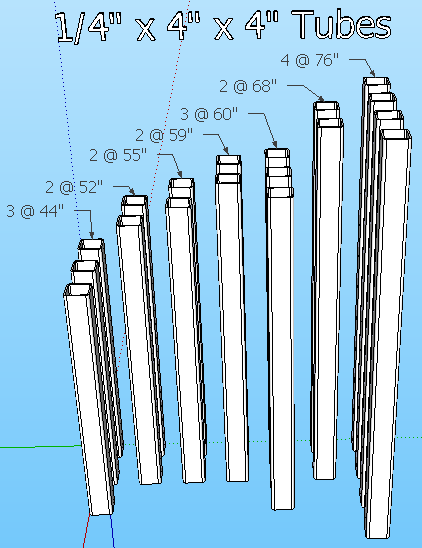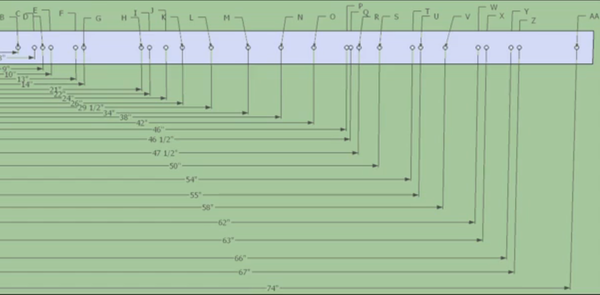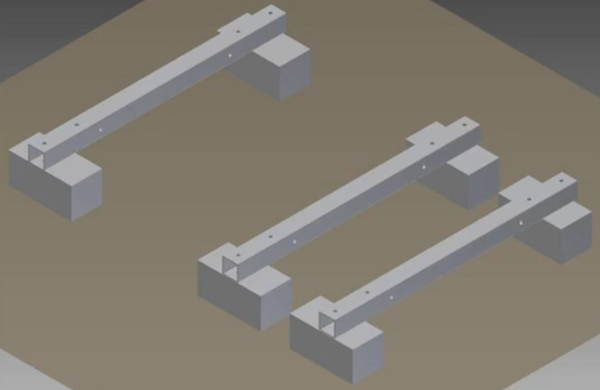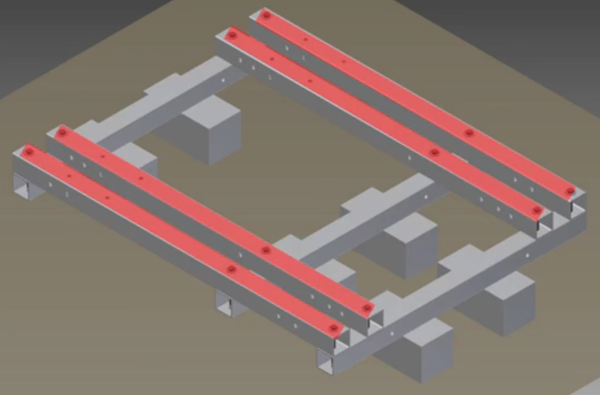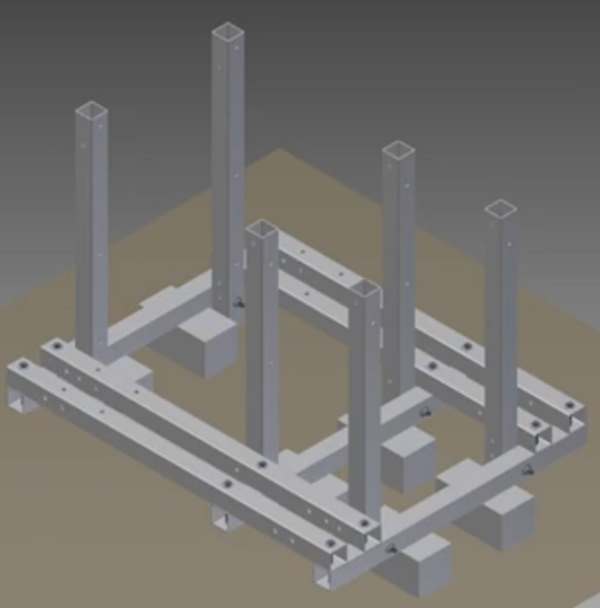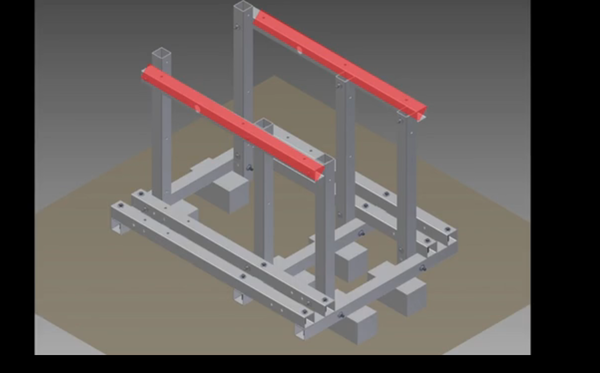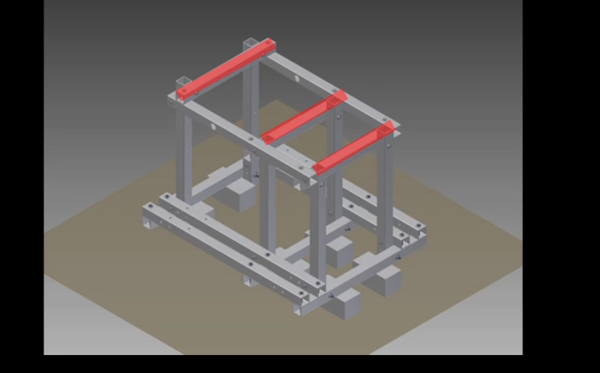LifeTrac III/Manufacturing Instructions
| LifeTrac III | ||
|---|---|---|
| Home | Research & Development | Bill of Materials | Manufacturing Instructions | User's Manual | User Reviews | 
| |
| ||||||||||||||||||||||||||
Tools and Materials
- Edit
https://docs.google.com/spreadsheet/ccc?key=0AlpsBarfpPkzdFVFLWd1Y21fTllEb3JJNjhDd2dYZUE
![]() Warning: The LifeTrac design is in development. Some information contained in these pages may be out of date.
Warning: The LifeTrac design is in development. Some information contained in these pages may be out of date.
Overview
LifeTrac is a low-cost, multipurpose open source tractor. It serves as a workhorse backbone for many of GVCS technologies.
Featuring a modular design and detachable PowerCube units, it has the ability to rapidly switch between a variety of GVCS machines via the QA Plate. The machine is overbuilt with a focus on lifetime design and ease of repair.
Four hydraulic motors provide skid steer power to the wheels, and a unique chain tread system enables navigation of fairly extreme terrain.
Preparation
Safety
- Hearing Protection
- Eye Protection
- Steel Toe Boots
- Welding
- Gloves
- Hood
- Apron/Jacket
Workspace
This section describes the various workspace areas that we have found to be useful in fabricating the LifeTrac. It is provided as a suggestion for preparing your work area.
- Storage: For raw steel and parts
- Cutting Area: For use with cutting torch - Made from non-flammable materials
- Welding Table: Usually steel, suitable for use with arc welder (MIG, TIG, stick, etc)
- Ventilation for cutting / welding areas
Tools
- Welder
- Angle Grinder
- Hand Tools
- Crescent wrench
- Socket set
- Hammer
- Metal Cutting Tools
- Bandsaw
- Chopsaw
- Torch
- Paint Tools
- Gravity Fed Paint Sprayer
- Air compressor
Cut Sheet
- This list contains instructions for cutting the raw steel into pieces for assembly. Most will require further cuts before being ready for assembly.
3/8” Thick, 8" Plate
- 4 @ 12 1/2"
1/2" Thick, 4" Plate
- 6 @ 6"
- 8 @ 4" (cut each diagonally for 16 triangles)
1/2" Thick, 8" Plate
- 4 @ 6"
- 8 @ 10"
1/2" Thick, 10" Plate
- 8 @ 10"
- 4 @ 6 3/4"
1/2" Thick, 12" Plate
- 5 @ 12"
1" Thick, 8" Plate
- 4 @ 4 1/2"
1/2” Thick, 4" x 6" Angle
- 4 @ 6"
¼” Thick, 2 3/8" Dia Steel Tube
- 1 @ 4 1/2"
¼” Thick, 4" x 4" Steel Tube
- 3 @ 44"
- 2 @ 52"
- 2 @ 55"
- 2 @ 59"
- 3 @ 60"
- 2 @ 68"
- 4 @ 76"
5/16” Thick, 2 1/2" Dia Steel Tube
- 4 @ 5"
3/8” Thick, 3" x 6" Steel Tube
- 1 @ 45"
- 2 @ 100"
1 7/8" Shaft
- 4 @ 28"
- 1 @ 56"
Parts Fabrication
Frame
Frame
As a general rule, all the measurements I have listed here will be more accurate if you mark the centre of each tube and then measure the "holes" from the centre out as opposed to from the ends in, in case some tubes are not cut to the exact lengths.
Key - (V) = Vertical. (E,W) = East,West. (N,S) = North South.
13/16" drill bit used for 3/4" bolts.
- [4] 92"×4"×4" Tubes for base.
- [2] Outer base tubes - 13/16" (V)holes 2" from ends. (V)holes 4" front of centres. (E,W)holes for wheel plates 9" & 13" from ends. (V)holes for hydraulic base plate 13-1/4" & 22-3/4" behind centres, 1-1/4" from outer edges.
- [2] Inner base tubes - (V)holes 2" form ends. (V)hole 4" front of centres. (E,W)holes 6", 9" & 13" from ends & (E,W)holes in centres. (V)holes for hydraulic base plate 13-1/4" & 22-3/4" behind centres, 1-1/4" from inner edges.
- [3] 60" Under base tubes.
- (V)holes 2" & 10" from ends.
- (N,S)holes 14" form ends.
- [2] 55" Front vertical tubes.
- (E,W)holes 2" form tops & 2", 6" & 9" from bottoms.
- (N,S)holes 6" from tops & 5" from bottoms.
- [2] 52" Centre vertical tubes.
- (E,W)holes 2" from tops & 6" from bottoms.
- (N,S)holes 6" from tops & 2" from bottoms.
- [2] 59" Rear vertical tubes.
- (E,W)holes 6" from tops & 2", 6" & 9" from bottoms.
- (N,S)holes 2" from tops & 5" from bottoms.
- [3] 44" Top (overhead E,W) tubes.
- (V)holes 2" from ends.
- (N,S)holes 6" from ends.
- [2] 84" Top (overhead N,S) tubes.
- (E,W)holes 2" from ends & in centres.
- (v)holes 6" from ends & 4" from of centres.
¼” x 4" x 4" Steel Tube
- Verify the following 4" x 4" tubes have already been cut:
- To simplify hole placement, here is an image of a jig (click to enlarge):
Drilling Tubes
- Unless otherwise specified, drill all holes at 13/16" diameter.
- Drill holes through entire tube (ie: through both sides).
- For each tube, measure all holes from one end of tube.
- 3 Lower cross tubes, 60" long
- Drill holes at 14", 46"
- Rotate 90 degrees, drill holes at 2", 10", 50", 58"
- 2 Bottom Inner North-South tubes, 76" long
- Drill holes at 6", 9", 13", 30", 63", 67", 70"
- Rotate 90 degrees, drill holes at 2", 10", 50", 58"
- 2 Bottom Outer North-South tubes, 76" long
- Drill holes at 9", 13", 63", 67"
- Rotate 90 degrees, drill holes at 2", 34", 58 1/2" 62", 74"
- 2 Front Vertical tubes, 55" long
- Drill holes at 6", 50"
- Rotate 90 degrees, drill holes at 2", 46"
- 2 Middle Vertical tubes, 52" long
- Drill holes at 6", 24", 50"
- Rotate 90 degrees, drill holes at 2", 46"
- 2 Rear Vertical tubes, 59" long
- Drill holes at 2", 21", 29 1/2", 47 1/2", 54"
- Rotate 90 degrees, drill holes at 6", 50"
- 2 Top North-South tubes, 68" long
- Drill holes at 6", 22", 62"
- Rotate 90 degrees, drill holes at 2", 26", 66" and a 2 3/8" hole @ 48" (with cutting torch)
- 3 Top Cross tubes, 44" long
- Drill holes at 6", 38"
- Rotate 90 degrees, drill holes at 2", 42"
Assembly
- Use 6 blocks to support the 3 bottom cross members
- Place the 4 bottom North-South members on bottom cross members, secure loosely with 9 1/2" bolts, washers and lock nuts.
- Align the 6 Vertical members with holes in the lower frame, secure loosely with 9 1/2" bolts, washers and lock nuts.
- Align the 2 Top North-South members with upper holes in the vertical members, secure loosely with 9 1/2" bolts, washers and lock nuts.
- Align the 3 Upper Cross members with holes in the upper North-South members, secure with 9 1/2" bolts, washers and lock nuts.
- Tighten all bolts / nuts.
